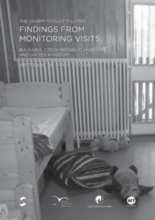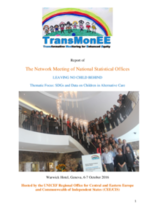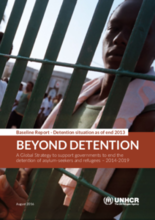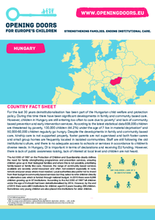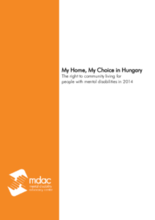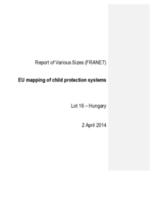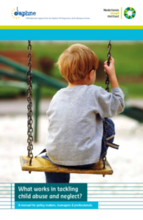Displaying 41 - 50 of 55
This report is one of several outputs arising from the project “Identifying and Preventing Abuse of Children with Mental Disabilities in Institutions.” The report presents findings from the monitoring of European institutions where children with intellectual disabilities and children with psychosocial disabilities live on a permanent or semi-permanent basis, through the development of tools and guidance aligned with international human rights law and policy.
DailyNews Hungary reports Hungary plans to begin transitioning children out of institutional care into foster homes beginning in 2018.
This document summarizes the content of the 6-7 October 2016 Network Meeting of National Statistical Offices. The event comprised of a number of presentations on topics related to the SDGs and data on children in alternative care.
Global Strategy – Beyond Detention 2014-2019 is a document released by UNHCR, which aims to support governments to end the detention of asylum-seekers and refugees.
This Country Fact Sheet discusses deinstitutionalization as part of Hungary’s child welfare and protection policy.
Despite Hungary signing on to the UN Convention on the Rights of Persons with Disabilities (CRPD), there has been no significant change in the number of people with disabilities in Hungary who are placed in institutions. Mass institutionalisation continues to be the predominant form of care for people--including many children--with mental health issues and intellectual disabilities.
The European Union Agency for Fundamental Rights (FRA), at the request of the European Commission, conducted research on national child protection systems in the 28 European Union (EU) Member States. It seeks to understand how national child protection systems work and to identify common challenges and promising practices. This mapping is for Hungary.
This paper discusses the challenges of reforming the child welfare and protection systems in Hungary and Romania -two countries in transition from socialism to capitalism- and the impact on children, young people, families, and professionals. The focus is on the efforts made to deinstitutionalise children from large institutions, develop local prevention services, and develop alternatives to institutional care.
This manual is the main outcome of the European Commission Daphne III programme, Prevent and Combat Child Abuse: What works? Involving regional exchanges and research from five countries (Germany, Hungary, Portugal, Sweden and the Netherlands), this manual brings together knowledge on what works in tackling child abuse. The manual suggests evidence and practice-based prevention and response strategies against child abuse and neglect, including programs and services that have been shown to be successful in strengthening family care.
This document is a Hungarian language summary brochure of the Manual of Good Practice titled ‘Child Abandonment and its Prevention in Europe,’ specific to child abandonment in Hungary.

